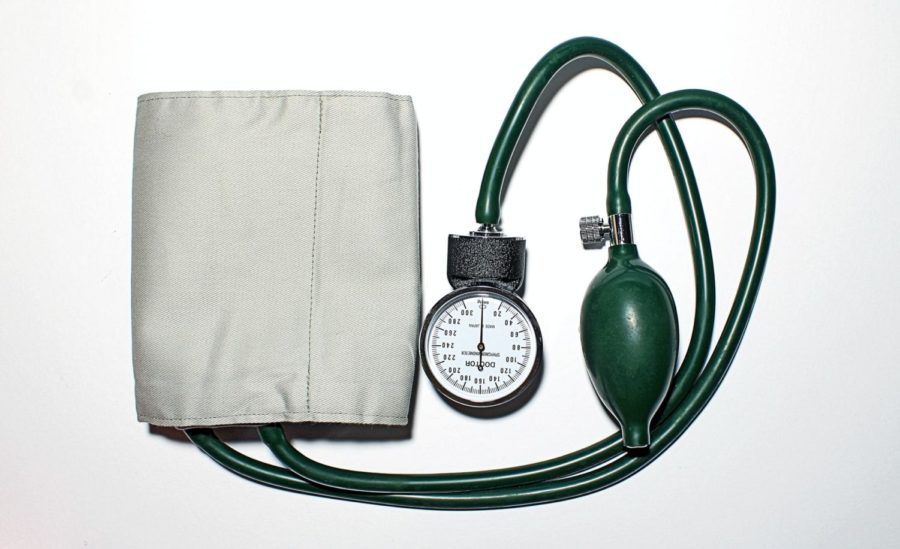Editorial: Reserving judgement
The ISD Editorial Board argues in favor of an Iowa Supreme Court ruling that prohibits state licensing boards from releasing details of allegations made against a professional until the investigation is over.
November 1, 2021
Editor’s Note: Editorials are representative of the views of all Editorial Board members. One or two members will compile these views and write an editorial.
Imagine if your doctor was systematically abusing his or her power as a physician; not to you, but to vulnerable members of the community. The abuse didn’t rise to the level of a crime, but still warranted an investigation by the state medical licensing board.
Perhaps this doctor was overly confrontational with nurses or patients, or prescribing excessive amounts of medication. Maybe his or her actions were as seemingly harmless as ordering specific medical tests, that to other doctors would be wildly unnecessary.
If any of those things were going on in your doctor’s office, you would want to know about them, even if they weren’t happening to you. If other people filed formal complaints against your doctor, it is understandable, if not logical, that you as a patient would deem that important information to be notified of, or at the very least, disseminated.
But the Iowa Supreme Court disagrees with you, at least so much in that they believe Iowa law currently disagrees with you. According to a recent ruling by the high court, state licensing boards, including those for medicine, cannot reveal or even summarize the details of allegations made against a licensed professional until the conclusion of the investigation when a written decision has been made.
Admittedly, this does align with the American ideology of guilty until proven innocent, but the presumption of innocence is tied to criminal trials, which this ruling has nothing to do with. If a doctor were sexually abusing someone, allegations would be made known to the public, but that doctor would also enjoy the presumption of innocence. That, however, would be a criminal matter handled by the police, not one of professionalism and conduct handled by the state medical licensing board.
Opponents of the ruling argue that this makes communities, particularly medical practices, more dangerous, as improper conduct can be kept hidden from view under the guise of privacy. That may be true, but only to the extent that the improper conduct is entirely non-criminal and also doesn’t give rise to a civil lawsuit. That is an incredibly narrow margin of activity.
In Iowa, that improper activity has resulted in approximately 30 disciplinary actions by the state medical licensing board against doctors each year, with those 30 decisions coming from approximately 600 complaints.
That statistic alone makes it very clear that patients have a very poor understanding of what merits unprofessional behavior in medicine. Perhaps, then, it is okay for the state medical licensing board to withhold information until the conclusion of one of those 30 investigations. After all, they reserve the right to suspend a doctor at any time if evidence of actions should warrant such a punishment.
If a doctor were to do something truly horrible, they would lose their license to practice medicine immediately. Odds are they would also face criminal or civil charges for their actions, in which case this recent ruling becomes irrelevant.
In the meantime, doctors who upset a patient and have a complaint filed against them that the state board deems meritless remain protected. There are approximately 570 complaints filed each year in Iowa. At the same time, those 30 complaints are dealt with. After a complete investigation, a written ruling makes known what a specific doctor has done wrong and an appropriate punishment is delivered.
Are those 30 complaints remaining secret for the duration of the investigation really making Iowa that much more dangerous?
The answer is no. In America, the truth matters, or at least we say it does. This ruling upholds that ideal in that it withholds judgment until all of the facts have been assembled and analyzed.
It’s important that we preserve this ideal and apply it wherever we safely can. By protecting reputations locally, at the lowest possible procedural level, we can bring balance to a system that does sometimes need to publicly accuse an individual before an investigation is complete.
To be very clear, that does not mean it is okay to convict an individual before a fair and proper assessment of the facts. The Sixth Amendment is important and we need to protect it. But sometimes, preliminary facts make it very clear that someone has done something and we as a society need to condemn that action.
The court of public opinion is a volatile yet strong one. We should reserve public judgment for those cases where the public’s opinion matters more than the facts.
Your doctor displeasing you is not one of those cases. File a formal complaint. See if the state medical licensing board agrees with you. If they do, awesome. You’ll have your opportunity to publicly ridicule your former doctor. But in the far more likely scenario that they don’t agree, recognize that you were in the wrong and maybe just have a conversation with your doctor.







